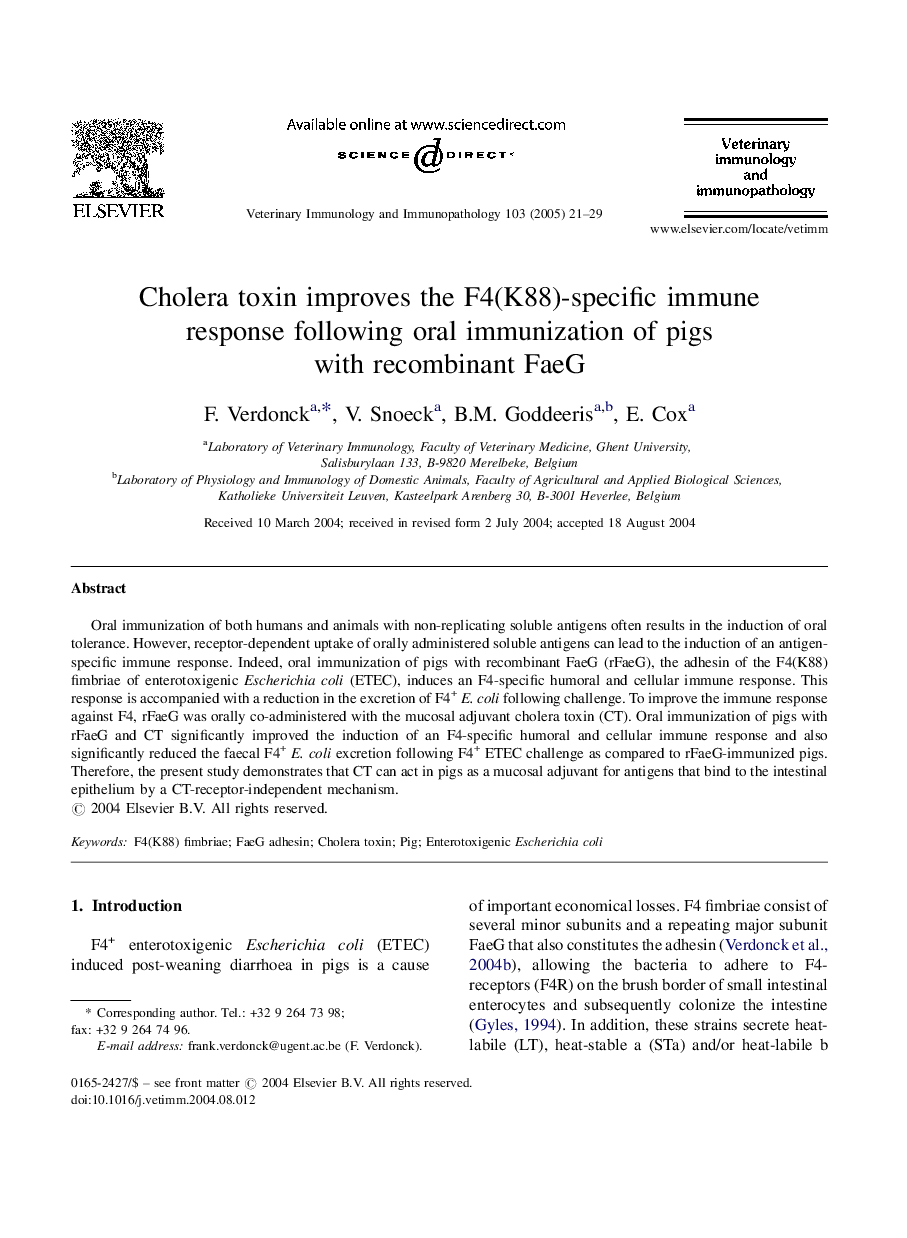| Article ID | Journal | Published Year | Pages | File Type |
|---|---|---|---|---|
| 8987865 | Veterinary Immunology and Immunopathology | 2005 | 9 Pages |
Abstract
Oral immunization of both humans and animals with non-replicating soluble antigens often results in the induction of oral tolerance. However, receptor-dependent uptake of orally administered soluble antigens can lead to the induction of an antigen-specific immune response. Indeed, oral immunization of pigs with recombinant FaeG (rFaeG), the adhesin of the F4(K88) fimbriae of enterotoxigenic Escherichia coli (ETEC), induces an F4-specific humoral and cellular immune response. This response is accompanied with a reduction in the excretion of F4+E. coli following challenge. To improve the immune response against F4, rFaeG was orally co-administered with the mucosal adjuvant cholera toxin (CT). Oral immunization of pigs with rFaeG and CT significantly improved the induction of an F4-specific humoral and cellular immune response and also significantly reduced the faecal F4+E. coli excretion following F4+ ETEC challenge as compared to rFaeG-immunized pigs. Therefore, the present study demonstrates that CT can act in pigs as a mucosal adjuvant for antigens that bind to the intestinal epithelium by a CT-receptor-independent mechanism.
Related Topics
Life Sciences
Agricultural and Biological Sciences
Animal Science and Zoology
Authors
F. Verdonck, V. Snoeck, B.M. Goddeeris, E. Cox,
